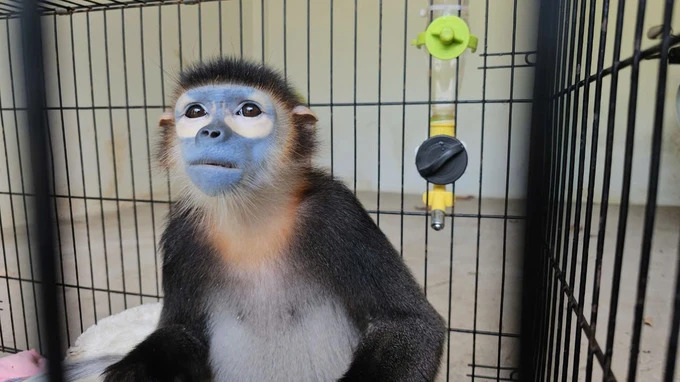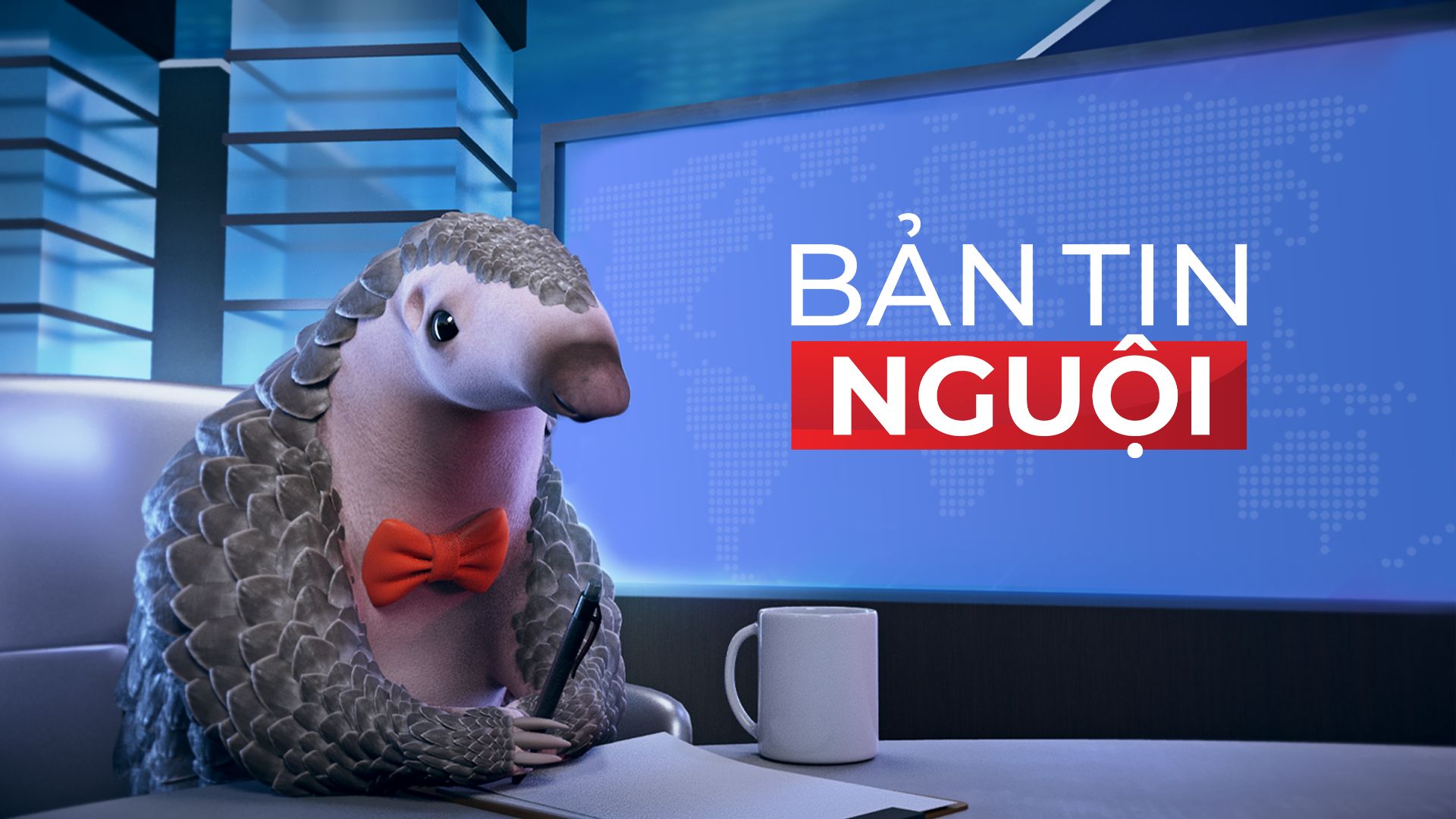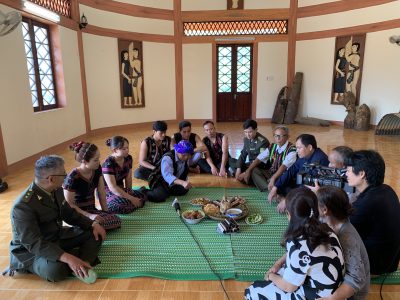Resident voluntarily hands over langur
On August 19th, a resident of Binh Phuoc province voluntarily handed over a black-shanked douc langur. This is a meaningful act and a promising sign of changing public awareness about the conservation of rare and endangered wildlife.
It is known that this langur had been raised for a long time by Mr. Tran Minh Tuan’s family (residing in Phu Hoa 1 neighbourhood, Phu Duc ward, Binh Long town, Binh Phuoc province). After being encouraged and researching, Mr. Tuan realized that this is a rare and endangered wild animal that needs to be prioritized for protection, so he voluntarily handed it over to the Bu Gia Map National Park’s Propaganda, Tourism, and Rescue Center for care before being released back into the forest. (Source: Sai Gon Giai Phong newspaper)

Mr. Tuan handed over the black-shanked douc langur to the authorities. (Photo: SGGP newspaper)
After research, the handed-over individual was identified as a black-shanked douc langur (scientific name Pygathrix nigripes), a species endemic to the Indochinese Peninsula, distributed only in the southern part of Vietnam and eastern Cambodia. It is classified as critically endangered and at risk of extinction in both the World Red and Vietnam Red Book.
This langur species is notable for its striking white tail, which is black from its nails to paws. However, due to habitat loss and illegal hunting, the population of black-shanked douc langurs has declined sharply in recent years. Precisely, it is estimated that the population of black-shanked douc langurs in Vietnam is less than 5,000 individuals. Therefore, each rescued and conserved langur is a great success in the effort to protect wildlife. (Source: Cat Tien National Park)
Each of us can contribute to wildlife conservation through small but meaningful actions:
- Raise awareness by learning about rare and endangered wildlife. Share this information with your family and friends to spread awareness of wildlife conservation.
- Report illegal hunting: If you discover any illegal hunting or wildlife trafficking, please immediately report it to the authorities.
- Protect the habitat: Every action, from saving water and reducing plastic use to planting trees, contributes to protecting our environment and the habitats of wild animals.







